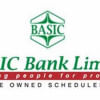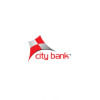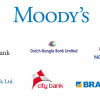Finacing the future, sustainably

Global temperatures have been rising at an alarming pace in recent years thanks to increased human activity and as such, even climate change deniers can now perceive the growing heat wave.
This recently even compelled the United Kingdom to declare a national emergency, issuing a red "extreme heat" warning to people living in England.
Modern civilization now faces a challenge to survive the adversity of climate change but if there is one thing to find solace in, it is that humankind has so far overcome all difficulties faced from its origin till date.
And so, this time too it has discovered many potential solutions to remedy the crisis.
Reducing pollution and cutting industrial carbon emissions are among the top solutions to fight climate change but it is not an easy task to reshape businesses in a way that their activities align with environment-friendly practices.
This is because restructuring industries means the businesses may face a potential loss in trading.
However, banks across the globe have started giving out green loans for the past decade so that businesses feel encouraged to run their activities without harming nature.
Global borrowing by issuing green bonds and loans, and equity funding through initial public offerings targeting green projects swelled to $540.6 billion in 2021 from $5.2 billion in 2012, according to a Reuters report quoted by TheCityUK and BNP Paribas.
The importance of sustainable finance is also widening in Bangladesh, where the general public living in a number of districts along the costal belt have already perceived the adversity of climate change.
As such, banks in the country have taken a set of initiatives to make sustainable finance vibrant, helping them not lag behind global lenders.
For instance, The City Bank disbursed green loans to the tune of Tk 4,919 crore last year, up 160 per cent year-on-year.
Mashrur Arefin, managing director of The City Bank, said the lender has certain plans to grow in the area of green and sustainable finance.
"We are aligned with the sustainable development goals of the United Nations," he said.
The bank recently joined the United Nations Net Zero Banking Alliance (NZBA) as it is committed to achieving the net-zero emission target of the Paris Climate Agreement.
"We will gradually align our lending and investment portfolios as per the net-zero emissions target. To make it achievable, the bank has a long-term plan for reducing greenhouse gas emissions from its operations and lending portfolio," he added.
Arefin went on to say The City Bank has introduced dedicated sustainable finance helpdesks in 32 of its branches across Bangladesh and that these kiosks provide customers with all the required information regarding sustainable finance policies.
Eastern Bank Ltd (EBL), another lender in the country, has already registered a magnificent performance in this respect as it disbursed Tk 3,652 crore in sustainable finance last year, up 21 per cent from the year before.
Ali Reza Iftekhar, managing director of EBL, said that environmental and social risk management is a key part of the lender's sustainable financing activities.
EBL established a Green Banking Policy back in 2012, which later evolved into an Environmental and Social Risk Management Policy.
The bank contributed to sustainable finance in Bangladesh in 2009 in a first of its kind initiative by providing a loan to Rahimafrooz Accumulators to set up a 12MW PV solar panel assembly plant.
Besides, the risk factor in sustainable financing is much less than the risk in conventional financing.
"If we analyse the databases of all banks operating in Bangladesh, we will find that the rate of classified loans for sustainable finance is less than 1 per cent while the rate of classified loans for conventional finance is more than 10 per cent," he said, adding that customers are also interested in taking sustainable finance.
As per Bangladesh Bank data, defaulted loans stood at only 0.52 per cent of the total outstanding green loans given out by lenders as of December last year.
Banks and non-bank financial institutions (NBFIs) collectively disbursed Tk 81,354 crore last year.
A central bank official said they had recently changed the policy related to the calculation method of green loans, so it is difficult to make a comparison of green loan disbursement between 2021 and 2022.
But loans disbursed in environment-friendly businesses are increasing magnificently, he added.
Chowdhury Liakat Ali, an additional director of Bangladesh Bank, said they have taken a number of policy initiatives to boost banks and NBFIs such that they feel encouraged to disburse more green loans.
The central bank now ranks 10 banks and 5 NBFIs that show the best performance for green loan disbursements each year.
"The rating certainly motivates all lenders to disburse more green loans," Ali said.
In addition, the central bank has rolled out four refinance schemes from its own fund so that clients can get green loans at a low interest rate.
For instance, Bangladesh Bank established a revolving refinance scheme amounting to Tk 200 crore from its own fund for solar energy, biogas and ETP projects in 2009, he added.
Banks and NBFIs took green loans to the tune of Tk 101.5 crore from the revolving scheme. The size of the fund was later increased to Tk 400 crore to fulfil the growing demand from borrowers. The interest rate of the fund hovers between 6 per cent and 7 per cent.
Md Arfan Ali, managing director of Bank Asia, says the lender is now giving priority to providing green loans.
The bank conducts an environmental rating scale on businesses before giving out loans to them, Ali said.
As such, firms that set up environment-friendly industrial units get priority in availing green finance from the bank.
"We will speed up the green loan disbursement in the foreseeable future," Arfan said, adding that global banks are now embracing sustainable financing more than before to fight climate change.
Selim RF Hussain, managing director of BRAC Bank, said his organisation has a goal of becoming the number one sustainable bank in the country.
The bank's board has already mandated "Vision 2025", where it expects sustainability to be one of the fundamental driving forces.
"We have already synergized our business strategy as well as its performance parameters to contribute more towards achieving the sustainable development goals," Hussain said.
BRAC Bank is now working towards achieving carbon neutrality as it has a climate change commitment to fulfil as a member of the Global Alliance for Banking on Values.
The lender is also bringing innovative financing tools with its development partners for green entrepreneurs to flourish, especially for the climate vulnerable and marginal people, he added.
The central bank recently started focusing on disbursing green loans among cottage, micro, small and medium enterprises (CMSMEs) and the agriculture sector as well.
Under the sustainable finance programme, banks and NBFIs disbursed Tk 2,339 crore in CMSME loans between January and March this year.
The CMSMEs that address the issues of inequality, inclusiveness, investment in human capital and communities to protect the environment from pollution are considered for green loans from lenders.

 For all latest news, follow The Daily Star's Google News channel.
For all latest news, follow The Daily Star's Google News channel. 








Comments